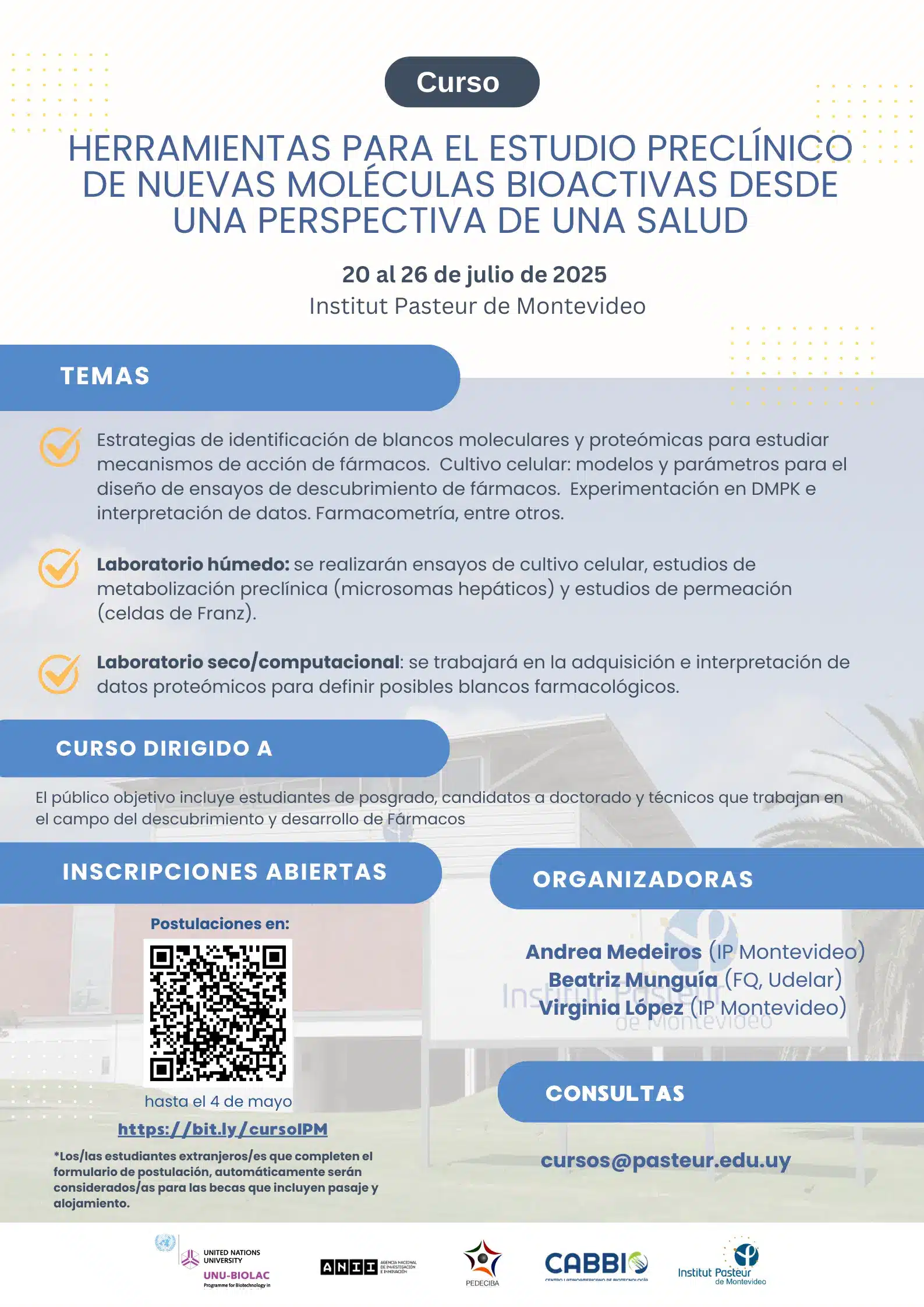Course Objectives:
The first day will begin with an introductory talk by the coordinators, followed by brief presentations in which each student will introduce themselves, sharing their interests and expectations for the course. In addition to contributing to participants’ training, these presentations aim to foster interaction and facilitate the identification of colleagues with similar or complementary experience and interests.
Subsequently, the agenda includes a comprehensive talk on the fundamental concepts of the process, covering everything from the identification of small bioactive molecules to the selection of candidates for clinical studies.
During the following days, four types of activities have been planned, organized within a full-day schedule:
1-Plenary talks/workshops on key topics, in 40–50 minute sessions (with an additional 5–10 minutes for discussion), with a larger audience during the first five mornings:
Strategies for identifying molecular targets.
Proteomics strategies for studying drug mechanisms of action.
In silico screening: possibilities and limitations.
Cell culture: models and parameters for drug discovery assay design.
Introduction to DMPK (Drug Metabolism and Pharmacokinetics).
DMPK experimentation and data interpretation.
In silico models in drug development: Pharmacometrics.
Preclinical development: Toxicology.
Fundamentals of animal models and toxicity studies.
Preclinical PK (Pharmacokinetics) for drug studies in veterinary medicine.
Preclinical PK tools applied to unravel drug-drug or drug-natural product interactions in veterinary medicine.
Then, practical sessions for a group of 22 participants will consist of hands-on activities in both wet lab and in silico settings during the afternoons.
2-Wet lab: Hands-on experiments will include cell culture assays, preclinical metabolism studies (hepatic microsomes), and permeation studies (Franz cells).
3-Dry lab/computational: Activities will focus on acquiring and interpreting proteomics data to define potential drug targets.
4-Additionally, throughout the week, there will be instances for presenting and discussing applied scientific work through seminars and short talks. The event will conclude with a 2–3 hour roundtable discussion with all participants, where the results of the practical sessions and final conclusions will be discussed.
Since all participants will give oral presentations (10 min), there will be no poster sessions. However, a flexible schedule will be maintained, incorporating social time mid-week to encourage scientific and personal discussions.
Students will receive laboratory protocols in the form of a manual, along with basic knowledge of selected preclinical techniques for application in their home laboratories.
On Saturday, the course will conclude with an individual written evaluation.
Register here!

